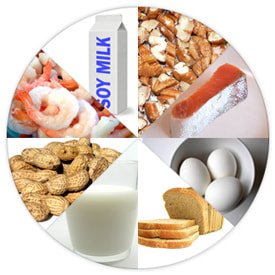|
Current allergy tests result in a high number of false positives. As a result, many Americans believe that they are allergic to common allergens such as soy, wheat, peanuts, and milk, when in reality, they are able to eat these foods without adverse effects. Up to thirty percent of Americans believe that they are allergic to at least one food product when the actual percent is only five. The most common allergy test is injecting allergens under the skin of the arm and if the body is indeed allergic to the substance, it will produce histamines in that region and cause inflammation. This method is inaccurate because many potential allergens are tested at once so swelling is difficult to pinpoint.
MIT chemical engineer Christopher Love developed a new way for detecting allergies by screening for a patient’s cytokines, small proteins that a secreted by immune cells. When an allergic response is initiated, T cells produce cytokines to attract other immune cells to mount an immune response. The new method requires a patient’s T cells to be isolated from their blood sample and then the T cells are introduced to the allergens. The amount of cytokines generated is measured. For more information, visit http://www.sciencedaily.com/releases/2010/05/100521191241.htm. ~HW
0 Comments
Leave a Reply. |
Categories
All
Archives
April 2024
|

